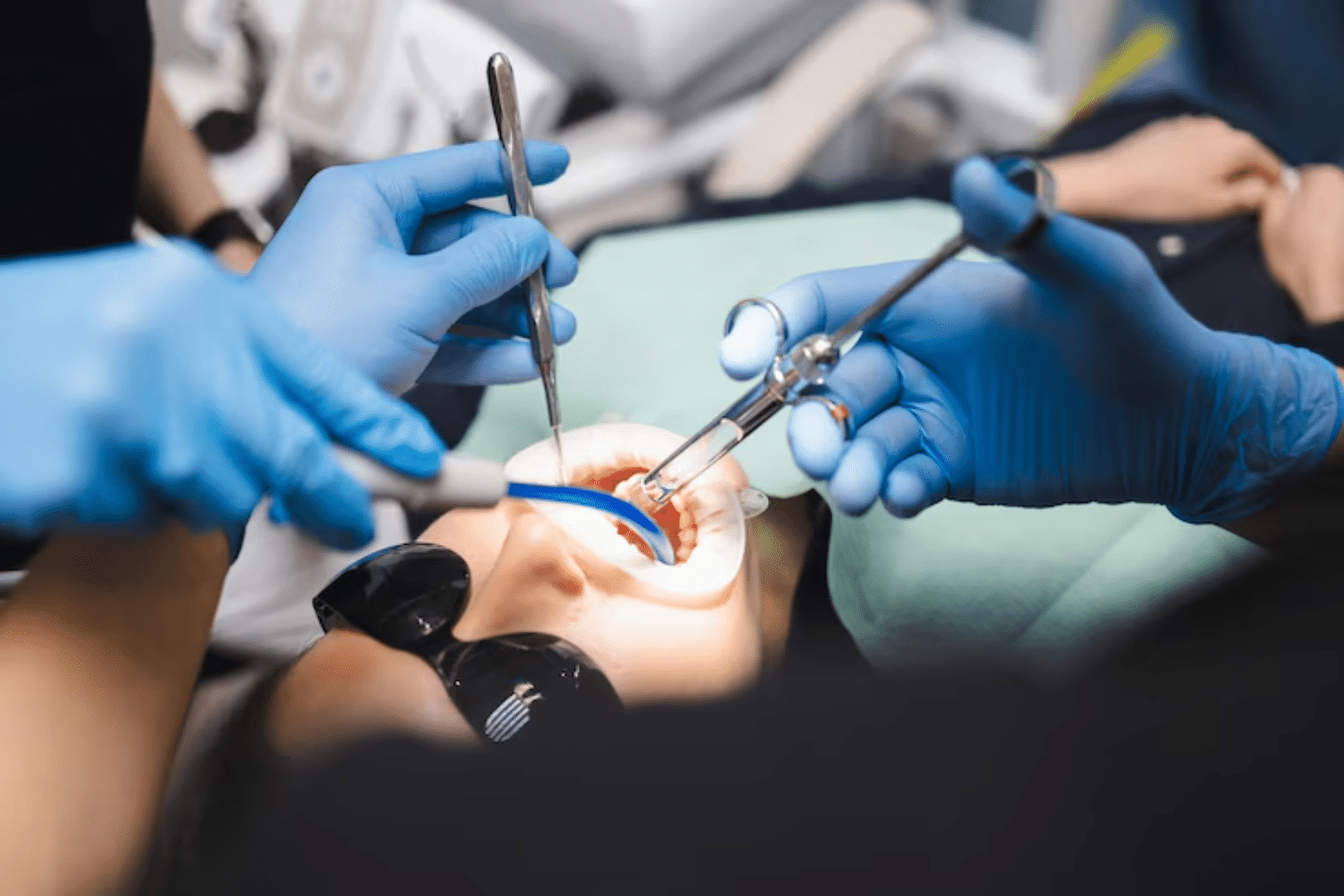3 Types of Sedation Dentistry & When They Are Used

Strong 8k brings an ultra-HD IPTV experience to your living room and your pocket.
Dental anxiety is a real challenge for many people. Whether it’s the sound of the drill, the fear of pain, or past negative experiences, a significant portion of the population experiences stress when visiting the dentist. This anxiety can prevent people from seeking the dental care they need, leading to further oral health issues down the road. Fortunately, sedation dentistry offers a solution for those who struggle with dental phobia or anxiety. For those seeking added comfort, painless dental in Brooklyn is available to ensure even the most sensitive patients feel at ease. By employing various sedative methods, sedation dentistry enables patients to undergo necessary dental procedures with minimal discomfort, fear, and stress.
Here are three types of sedation and their common dental uses.
1. Nitrous Oxide (Laughing Gas)
What Is Nitrous Oxide?
Nitrous oxide, commonly known as "laughing gas," is one of the most popular forms of sedation dentistry due to its mild sedative effects. It is delivered through a mask placed over the patient’s nose, allowing them to inhale a mixture of nitrous oxide and oxygen. This gas helps patients relax during dental procedures while allowing them to remain fully conscious and aware of their surroundings.
When Is Nitrous Oxide Used?
Nitrous oxide is ideal for patients who experience mild anxiety or fear about dental procedures. It is beneficial for shorter treatments or routine procedures, such as cleanings, fillings, and minor extractions. It is also commonly used for children, as it helps them remain calm and cooperative during treatment.
One of the key benefits of nitrous oxide is that its effects wear off quickly, allowing patients to resume their daily activities right after their dental appointment. There are no lingering drowsiness or grogginess issues, making it a convenient option for those with busy schedules after their appointment.
Benefits of Nitrous Oxide:
1. Provides mild relaxation without complete sedation.
2. Quick onset and offset of effects.
3. Patients remain conscious and responsive.
4. No recovery time required.
2. Oral Sedation
What Is Oral Sedation?
Oral sedation involves taking a pill or medication before the dental procedure. The sedative medication can range from mild to moderate, helping to calm the patient’s nerves before they even arrive at the office. Oral sedatives can be prescribed in advance, and patients typically take the medication about an hour before their dental appointment.
Oral sedation allows patients to feel relaxed and drowsy during the procedure, and while they remain conscious, they may not be as aware of the details of the treatment. This form of sedation is effective for patients with moderate dental anxiety or those undergoing more extensive procedures.
When Is Oral Sedation Used?
Oral sedation is typically used for moderate procedures or for patients who need a deeper level of relaxation than nitrous oxide can provide. It is ideal for patients who experience anxiety about longer treatments or those who have an intense fear of the dentist. Common procedures that may require oral sedation include root canals, tooth extractions, and dental implants.
Since oral sedatives tend to last longer than nitrous oxide, patients who undergo oral sedation should arrange for a ride home after the appointment. It is also recommended that patients avoid eating or drinking for a few hours before taking the medication to ensure the best possible effect.
Benefits of Oral Sedation:
1. Offers deeper relaxation than nitrous oxide.
2. Ideal for longer, more complex procedures.
3. Patients are still conscious but more relaxed.
4. Low-risk and simple to administer.
3. IV Sedation
What Is IV Sedation?
IV sedation, or intravenous sedation, involves administering a sedative drug directly into the patient’s bloodstream via an intravenous line. This method offers a deeper level of sedation than oral or nitrous oxide sedation, enabling patients to feel extremely relaxed and drowsy throughout the procedure. Unlike oral sedation, which may take longer to take effect, IV sedation works quickly as the medication is delivered directly into the bloodstream.
IV sedation can be adjusted in real-time during the procedure, allowing the dentist to maintain the optimal level of sedation tailored to the patient’s needs. Some patients may even fall asleep during the treatment and have little to no memory of the procedure afterward.
When Is IV Sedation Used?
IV sedation is typically reserved for more complex or invasive procedures, such as full-mouth dental restorations, multiple tooth extractions, or oral surgeries. It is also an excellent option for patients with severe dental anxiety who may find it challenging to tolerate dental treatment. IV sedation is often used for patients who require extensive treatment in a single appointment, allowing the top-rated sedation dentist in Brooklyn to complete multiple procedures in a single visit without the patient experiencing discomfort or stress.
As with oral sedation, patients will need someone to drive them home after the procedure, as the effects of IV sedation can last for several hours.
Benefits of IV Sedation:
1. Provides deep relaxation and calm.
2. Suitable for complex, lengthy procedures.
3. Allows dentists to adjust sedation levels as needed.
4. May result in no memory of the procedure.
Conclusion
Sedation dentistry offers a safe, effective solution for patients who experience anxiety or fear during dental appointments. The three primary types of sedation—nitrous oxide, oral sedation, and IV sedation—each offer unique benefits and are tailored to suit different levels of anxiety, procedure types, and patient needs.
If you have dental anxiety or need to undergo a more extensive procedure, sedation dentistry can make a world of difference, allowing you to receive the necessary care without stress or discomfort. Consult with your dentist to determine the best sedation option for you, ensuring a relaxed, comfortable, and successful dental visit.
Note: IndiBlogHub features both user-submitted and editorial content. We do not verify third-party contributions. Read our Disclaimer and Privacy Policyfor details.


